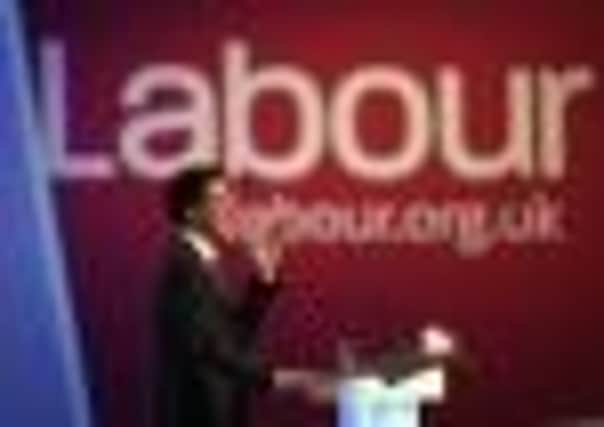Leaders: Union call for past-it politics won’t put Labour in power


The gauntlet was thrown down by Len McCluskey, the leader of Unite, one of the biggest donors to the Labour Party. He called for Mr Miliband to stop listening to the “Blairite dead”, “kick the New Labour cuckoos out of our nest and reconnect with the trade union movement”.
Both the words used and their context present a challenge to the Labour leader which he cannot ignore. His credibility as a party leader capable of standing his ground critically depends on making it clear to Mr McCluskey and any like-minded colleagues that the party has moved on. So, too, has the country.
Advertisement
Hide AdAdvertisement
Hide AdAnd the idea that Labour can afford to go back to the confrontational class-war politics of the 1970s is as absurd as it is suicidal. It is certainly true that the Labour “old guard” never took to Blairism and the Blairites. And that on a long succession of occasions they failed to prevail against the challenge which Blairism presented. And the reason they failed was because the party was tired of losing. It wanted to do that for which a political party is in being: persuade the people, win elections and run the country.
This they did. Now, long after the contours of the political map have changed, Mr McCluskey and the union left wish to pretend nothing has changed and to fight all the old battles again – only this time with a different result. But the historic result – one that Mr McCluskey and his ilk seem to have the greatest difficulty in recognising and can never reconcile themselves to – is that Blair and Blairism won three resounding election victories.
Moreover, while there is much to which the Left took strong exception, there was also much that was achieved in that period. In the fields of education and health there was much to advance the party’s ambitions and to make it absurd for the left-wing unionists to claim that Blair and Labour achieved nothing during this period.
Fortunately, Mr Miliband has not allowed this challenge to pass unanswered. He has retorted that Labour has no future if it is dominated by special interest groups like the unions. And he rightly emphasised that Labour, like all other major social democratic parties in Europe, has to represent a range of people, not just one sectional interest. It is remarkable that, despite the passage of the years, Mr McCluskey has not learnt this lesson and sees the future of Labour as belonging to one faction only.
This view of the future of Labour was defeated once. Clearly, to judge by Mr McCluskey’s remarks, one defeat is not enough. Allow this view of the future for Labour to prevail, and the party is as good as finished as a credible political force.
Tram trauma not over when it’s over
DID we hear right? Sources close to the trams project in Edinburgh say that, not only is the end in sight of the controversial transport system, but that it may be completed six months earlier than previously thought.
Well, “previously thought” covers a multitude of positions: it was first thought that the full tram works would have been finished two years ago. But, as they say in the city chambers, that was then.
The issue now is how to break this news to the residents of the capital who have come to
Advertisement
Hide AdAdvertisement
Hide Adregard the tram works as part of the city’s heritage, like the Castle. Many may suffer withdrawal symptoms as the most credible excuse for late arrivals and missed appointments is to be taken from them. Can the capital’s roads
really be cleared of those constant closures and blockages and diversions and interruptions?
How will residents know their way round Edinburgh, now that the simplest idea of a straight line between points A and B has
become a convoluted maze?
How will they cope without the noise of the pneumatic drills – or, more typically, the blaze of anger when the drills were not being drilled? And what is to be done with all those dozens of sets of extra traffic lights – the ones so programmed as to effect the longest delays in the face of the longest lines of traffic?
In short, how is Edinburgh going to cope? Is it braced for the coming surge in Post Tramworks Traumatic Stress Disorder? The least the city council can do is to provide emergency counselling booths along the line to help citizens cope with the change to their circumstances, with work due for completion in … shall we say 2020?